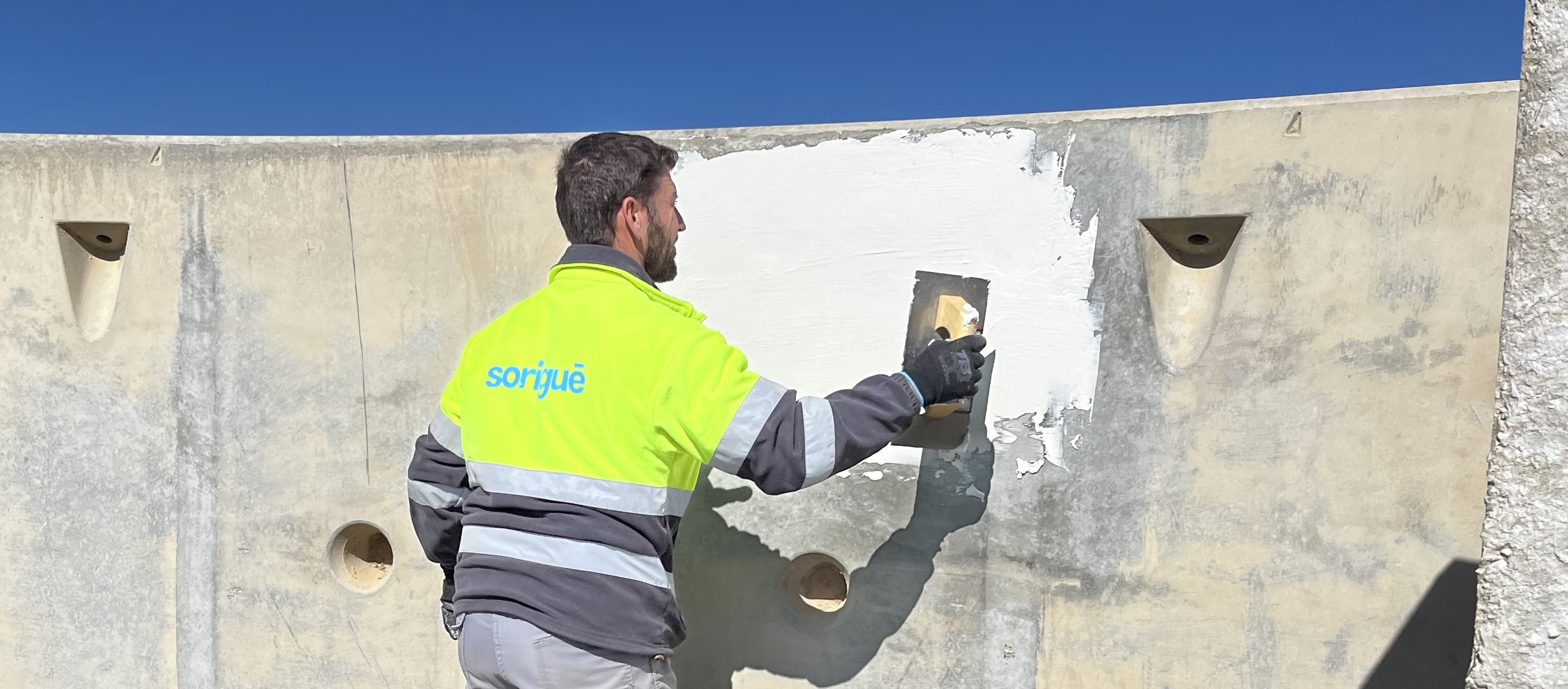Thursday, 02 March 2023
Capturing CO2 with a new material: ICN2 collaborates with Sorigué and Cales de Pachs to test the LightNET technology
ICN2 is collaborating with the companies Sorigué and Cales de Pachs to develop a material, to be adhered to different surfaces, that can capture CO2. The tests of this technology, developed and patented at the ICN2 in the framework of the LightNET project, are being carried out at Sorigué's La plana del Corb industrial complex.

Capturing and storing CO2 from the air is one of the strategies to reduce greenhouse gases. In its search for innovative solutions to mitigate the climate crisis, Sorigué is collaborating with the ICN2 in the test of the LightNet technology, which allows CO2 to be fixed on surfaces using sunlight. LightNet has been designed and patented by researchers at the ICN2. It is based on a chemical process that occurs naturally in limestone and other minerals by which atmospheric CO2 is fixed in the form of calcium carbonate. LighNet boosts this process using sunlight, resulting in an efficient and clean technology.
Another aspect that adds value to this solution is that the lime-based material required for its production can be sourced locally and at low cost. For the full-scale tests, ICN2 and the company Cales de Pachs have developed a product that comes in two different forms and that is being tested at Sorigué. The first is very similar to plaster and can be applied to different surfaces. The second is made of small spheres that can be inserted in metal structures in the open air. Both options are designed to be easily integrated into urban environments.
With the aim of validating this new material, Sorigué is lending its facilities in the industrial complex of La Plana del Corb (Lleida) to test different applications and identify the most efficient ones. In a first phase, the material has been applied in "plaster" format in different formulations on a concrete slab to evaluate its performance under different conditions. In a second phase, the application on other surfaces and urban furniture elements will be assessed.
The industrial complex of La Plana del Corb is part of the PLANTA project, a space of Sorigué and its foundation that combines contemporary art, architecture, knowledge and landscape, and aims to be a place for the development of creativity and talent.
LightNET, an innovative negative emission technology that uses light to enhance direct air capture of CO2 and mineralize it onto solid surfaces, was developed in the framework of a project led by Dr Amador Pérez-Tomas, senior postdoctoral researcher in the ICN2 Advanced Electronic Materials and Devices Group. It has also received the support of XRE4S, the R+D+I Network Energy for Society, which is a multidisciplinary ecosystem that gathers the expertise in the energy field of the main universities and research centres in Catalonia. Learn more about LightNET in this video.
In addition to Dr Pérez, the phase of testing of this new material involves Francesc Piñol and Màrius Sardà from Cales de Pachs and Nigel Bax and Dr Zulema Borjas from Sorigué.



